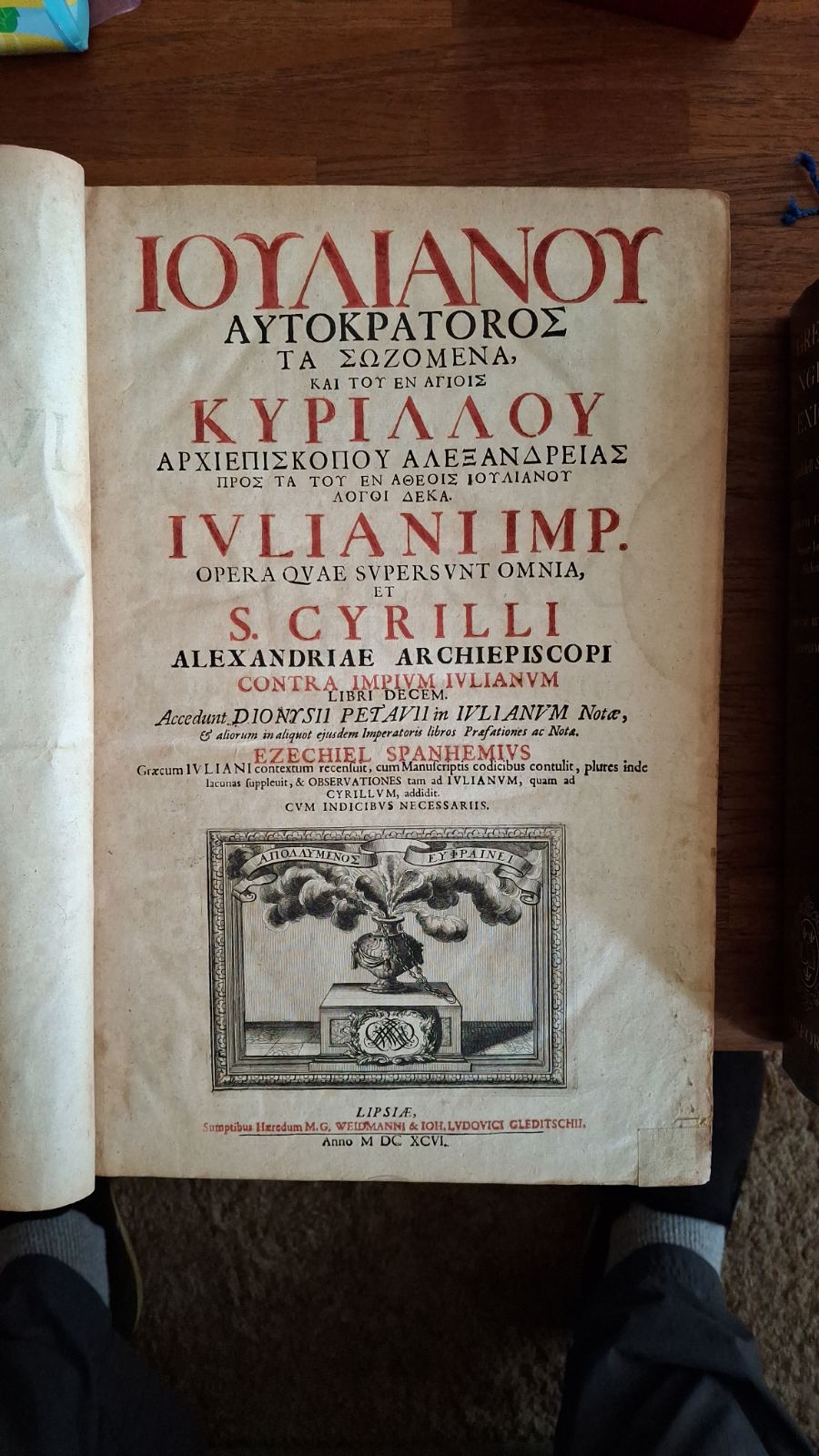Ancient (and less ancient) writers used to publish works entitled (in Latin) “Summa [fill in the blank].” A direct translation would be “All [fill in the blank].” This was meant to convey that the author was trying to cover all the major issues in whatever topic he (usually he) was writing about. Thomas Aquinas wrote Summa Theologiae, his summation of all theology. But he was not the first – Simon of Tournai wrote a Summa a century before Aquinas.
But often, the author would be writing in rebuttal of someone or something. Thomas Aquinas himself famously wrote a Summa Contra Gentiles, not a rebuttal against non-Jewish people, but rather a rebuttal of non-Catholics. When my siblings and I were going through my recently departed father’s books, we found another Summa -type work in the Contra vein, which you can see above as the illustration for this blog piece.
This was a 1696 republication in both Greek and Latin of all the surviving works of the Roman Emperor Julian the Apostate, with a refutation of those works “Contra Impium Iulianum” (“against the apostate Julian”) by St. Cyril , archbishop of Alexandria in the early 400s CE. The joke that I am sure killed with 400s ecclesiastical audiences was that Julian’s most famous work was itself a “Contra,” Contra Galilaeos, or “Against the Galileans [i.e., Christians].”
So why am I literally dredging up ancient history? Because I want to get into the “Summa Contra” business myself.
The author and analyst of risk Nate Silver has a new book out, On the Edge: The Art of Risking Everything.
I am a long-time follower of Silver’s. I have read his numerical analysis of baseball for decades. I even admit to becoming somewhat obsessed with his election forecasts (at least up to November 9, 2016 – after which I think even he became a bit disenchanted with political prognostication).
But as anyone who has read my work here knows, I have major beef with his philosophical approach to dealing with fundamental future uncertainty. And that beef has not lessened with the release of his new book.
So I intend to comprehensively lay out exactly where I think his worldview is wrong. I hope he will take this in the spirit in which it is intended – as a testament to the influence of his work – and not as an imputation of “impious” motives to him. But, just as Julian the Apostate never read Cyril’s works (for the simple reason that Julian died 13 years before Cyril was born), Nate will probably never read my scathing witty criticisms of his best-seller.
But for those of you who are in the market for some entertaining sniping, the coming days and perhaps weeks shall include a fair amount of same “against Silver” (in Latin, “Contra Argentum”). I actually think my objections to this book might illuminate a lot of the problems society (especially American society) faces right now. And I hope they will be a good read. So – here we go.



